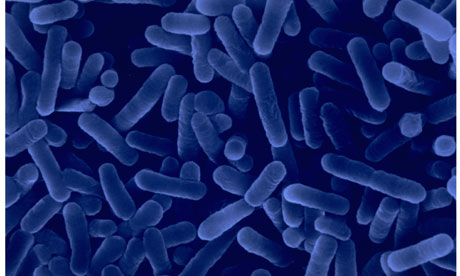
Two people in South Wales died from a recent outbreak of Legionnaire's Disease, a type of pneumonia which strikes without warning and whose origin is difficult to trace. In the medical journal the Lancet earlier this month doctors reported a case of a man who had caught the disease while handling bags of potting compost. One in ten people who catch the disease will die from it- thankfully the condition is rare. But what causes it and how do you know if you've got it?
What is Legionnaire's disease?
It's a pneumonia, a chest infection caused by a bacteria called legionella pneumophilia. It got it's name after it infected American war veterans gathering at an American Legion convention in 1976. You can't catch it from another person - most people getting it from inhaling the bacteria from water droplets in the air from contaminated purpose built water systems such as Jacuzzis or in cooling towers (though which heat from buildings is expelled), air conditioning systems in hotels and even windscreen wiper fluid. These bacteria usually live in nature in fresh water such as ponds but only multiply in artificial water systems which are warmer. The bacteria thrive on temperatures between 35 to 46 degrees Celsius. About one third of infections occur abroad- perhaps through hotel air conditioning systems.
What are the symptoms?
The problem with the disease is not just that it can be fatal but that symptoms can take up to 14 days to emerge – making the cause hard to trace. People can also live six km or more from the source of infection. Symptoms include a high fever (may be over 40 degrees Celsius), cough in about 90 percent of people (some may bring up blood), muscles pains, headache, shortness of breath and chest pain. Some people, around a third, get vomiting and diarrhoea. However many people do not get symptoms at all.
Who is at risk of the disease?
People over 50, who have been heavy smokers, have diabetes, or chronic lung disease are most at risk of developing the disease if exposed to the bacteria.
How is it treated?
The disease needs hospital treatment and antibiotics (through injection).
How can it be prevented?
The health and safety executive have strict guidelines on how water supplies at work should be managed.
The disease is rare though with only around 550 people catching the disease in 2006. No one has yet identified the cause in Wales but public health doctors are trying to do so to prevent further outbreaks.
Outbreaks traditionally occur in the summer and in early autumn. They are rare but getting early antibiotic treatment is essential and if you think you might have it you can phone NHS Direct on 0845 4647.

